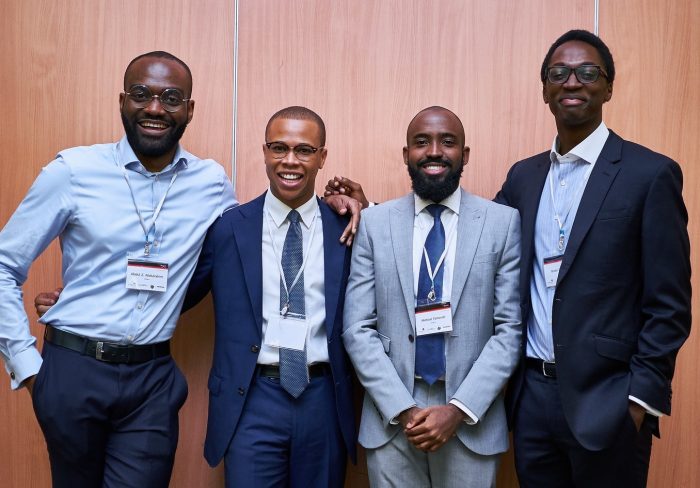My View And Experience
One thing I learnt as a young analyst working for a boutique investment bank was that great pitches, whether on the sell-side or the buy-side required top-notch research. Slick -talking can only get you so far. Even the swankiest of salesmen, at some point, would need to refer to a fact or a figure in the course of a sale.
The world’s best closers who have mastered the art of the close, know that to build such a reputation, one must be inclined to studying and understanding the market trends, engaging with the right set of information and asking the right questions.
Thankfully, I learnt early in my career the usefulness of having the right information and datasets. As I transitioned from IB (Investment Banking) into VC (Venture Capital) at CcHUB Growth Capital, I realised that the issues around access to data and information particularly within the African Market were exacerbated in the technology ecosystem.
Several reasons make it difficult to access quality data:

- Structure – Many entities, companies and governments collect and collate a ton of data on varied subject matters on a micro and macro level. The data collected are largely unstructured and difficult to use. There are very few companies looking for cost-efficient ways to extract value for the available data and so it becomes redundant, giving little or no value to decision-makers in corporate entities and governments.
- Privately held – a significant portion of collated datasets remain privately held. On the continent, there is a long lead time between the time the data is collated and the time it is analysed, synthesised and disseminated.
A significant number of technology companies remain private. As private companies are not required to put out corporate information on their performance, a lot of misinformation exists stemming from assumptions of what a company at a particular stage should have achieved in terms of measurable metrics.
Some companies have, however, elected to share certain information to improve their stakeholder engagement and management process. Earning these companies ‘sweetheart’ status with technology enthusiasts.
- Few samples – The sample size required to undertake a body of research remains small. On the continent, the number of companies in specific industries that have reached maturity and attained some form of listing event are so few, that it is difficult to get the dataset to benchmark. Some verticals such as fintech have gained popularity and may have some publicly available datasets. However, this is a result of the companies that have attained maturity. For example, Etranzact is a listed entity on the Nigerian Stock Exchange whilst its contemporaries such as Interswitch, SystemSpecs and Paga remain private.
- Not many platforms are aggregating the right dataset required for macro and micro-analysis in Africa especially with relations to specific industries and verticals.
We initially relied on Google and the work was daunting until we found a solution out of SE Asia that came close to solving our data and information challenges and we settled for it.
The Ecosystem
In recent times, we have seen several founders on the continent step up to solve the huge data and information challenges on the continent. Some of these startups provide industry-specific, microdata with drilled-down analysis of the results whilst others were focused on taking a sector-wide and agnostic approach to sharing data, focusing on the high level, top-line dataset.
The bottom line is, many players are looking to solve the data problem on the continent but none has scratched the surface. The big data players still have some distance to cover before we begin to name market leaders and crown category kings.
Our Thesis
Data has always played an integral role in our work. The importance of leveraging data in providing solutions to critical problems on the continent spurred us to build a research and design team in Kigali. The team is focused on the use of data and the application of a human-centred design thinking approach to problem-solving. We are acquainted with the problems of working with data and the team have spent time mastering the art of finding solutions to problems using data.
Our mandate is to support great companies that are building digital infrastructure that provides accessibility for public and private services at scale and we have our eyes on Big Data and the required infrastructure to support its advancement.
The Company
An opportunity to strengthen our strategy presented itself when we were introduced to the founders of Stears. A company known for taking complex and difficult-to-understand datasets, and delivering easy to understand, relatable content across several topical issues in the areas of governance, economy, finance, technology and international development amongst other coverage areas.
Stears is focused on making it possible for anyone, anywhere in the world to access high-quality information on Africa. The company collects, structures, analyses and disseminates information to enterprises (Stears Data) and individual customers (Stears Business). Our attraction to the company is primarily driven by their passion for creating amazing content for ordinary people as well as professionals. The company has created a niche for itself with its style of content curation.
The contents created are easy to understand and appealing to the young demographic who ordinarily would not want to consume such content if it is outside their scope of interest. Its B2B and B2G business takes complex data available to enterprises and governments and synthesises them in an easy to understand format that aids policy formulation and strategic decision making.

The Founders
After speaking with Preston and the team, we were more than convinced that they were passionate about the problem they had set out to solve. The co-founders have complementary skill sets with experience in financial services, compliance, technology and data science. They have known and engaged each other in past endeavours. That gave us a lot of comfort.

The Future
The company has positioned itself as the “Bloomberg of Africa” and is poised to provide easily digestible, fact-based information that people across varied demographics would binge on. They are building a web 3.0 driven technology to enable them to aggregate, synthesise, analyse, and report and distribute relevant dataset across varied industries on the continent. We are super excited about our journey with Stears and look forward to supporting their success.
Written by Victoria Fabunmi, Head of Investment Management at CcHUB.

